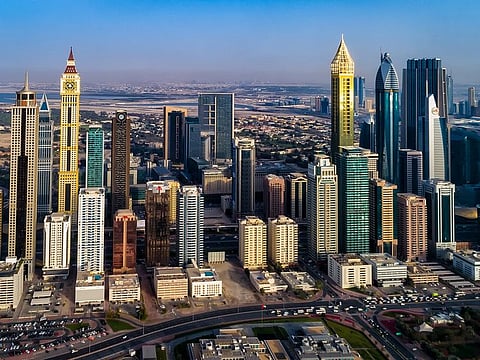Dubai property market’s upturn will not slow down from interest rate hikes
Latest home sales deals in Dubai see cash buying make more gains

When COVID-19 hit in 2020, the US Fed exhausted everything they had to combat the pandemic-induced recession, to the extent of offering a near zero interest rate. Lower interest rates motivated businesses to invest and borrow cheap.
It also encouraged home buyers— attracted by record low mortgage rates—to jump into the housing market. What the Fed was doing to help recover the economy from the pandemic is now all behind us. The Federal Reserve has completely shifted into inflation-fighting mode.
In the US, the interest rate on 30-year fixed mortgage was 3.11 per cent - it is now 5.27 per cent and the highest ever since 2009. Which means banks have not just increased their mortgage rate but also have started making eligibility stricter than ever before, which is indeed discouraging many from entering the housing market.
Where do we go from here?
No one can be certain on how aggressive - and how fast - the Fed will continue to hike interest rates, although many anticipate this to be the case. All depends on where the inflation goes next from now. In 1981, the average 30-year mortgage rate crossed 18 per cent - something that ultimately plunged the US economy into recession.
Dubai property is more resilient
Although Dubai’s property market is not immune to the impact from trends in the global economy, is likely to outperform markets across the US and the EU. Dubai has a very strong resilience against the interest rate risk for three main reasons:
• Historically, Dubai real estate market is not mortgage-driven market, as mortgage rates have been always more costly that what it is in the US and EU. Add to that mortgages in the EU are almost a pre-requisite strategy to help investors minimize the cost all taxations. Dubai remains a tax-free heaven for capital gains, rental income and inheritance.
• Q1-2022 witnessed an overall drop in mortgage transactions by 27 per cent, totalling 5,387 transactions and with a 35.5 per cent drop in value amounting to Dh25.1 billion, according to DXBinteract.com data. Taking a deeper look at the mortgage vs cash buyers for residential apartments during January to end April, mortgage buyers for ready apartment dropped by 18.5 per cent in transactions and 6.1 per cent on value. Cash-based buyers increased by 49.7 per cent in number of transactions and 101.9 per cent in value during this period.
• Dubai’s average home prices are considered undervalued not just compared to other global cities, but also against historical prices. With the exception of ultra-luxury property prices post-Covid, 2022 prices are below the 2014 peak prices. That is unlike in the US housing market, which shot up more than double since the 2009 global crisis.
What is the risk?
The Fed seems intent on rate hikes to fight inflation; however, so far we have not seen any major price softening. For Dubai, I don’t see any major micro risk.
Five fundamental factors
• Dubai housing prices today are beyond reasonable when you look at the global scale as well as the historical housing prices for the last 10 years. Which creates a clear opportunity to enter the market.
• Despite prices recovering post pandemic to around 2014 prices, the hard and the soft infrastructure in Dubai has improved by 10x when compared to the last 10 years. This makes today’s home prices even more attractive than any other city.
• Dubai’s population rose by nearly 100,000 during the last two years and will surpass 3.5 million in 2022. This is a major pillar for growing demand in the housing market.
• There is strong upward demand from all over EU into Dubai real estate market as these buyers see the market as well priced and offering plenty of capital gain opportunities in the short- and medium-term.
• A shift in developers’ mindset post-covid is seeing them focus more than ever before on the living experience elements in their projects. Unlike the past where most projects appeared to have too many similarities.
Sign up for the Daily Briefing
Get the latest news and updates straight to your inbox




